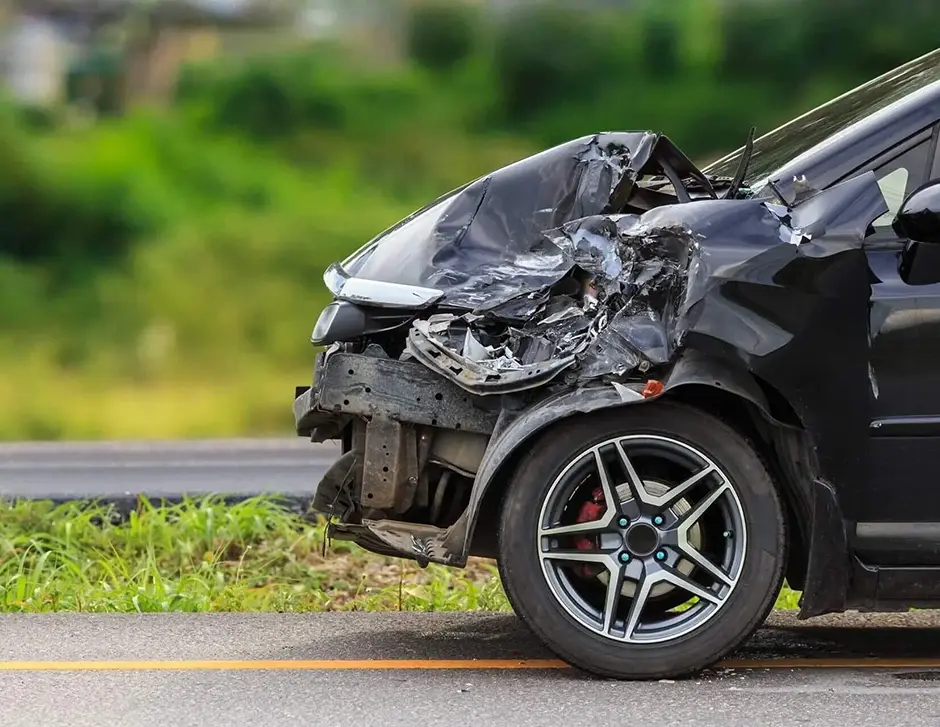Texas and Louisiana have enacted laws requiring drivers to stop immediately after an accident and offer assistance. Fleeing an accident scene is a serious offense, regardless of the damage caused. In worst-case scenarios, it can leave victims helpless when needing medical attention.
You may be wondering, “What are the charges for hit and run?” Keep reading to learn about your obligations under hit-and-run laws, the legal consequences of breaking them, and the steps to take if you’re involved in a hit-and-run accident.
Overview of Hit and Run Laws
To fully understand hit-and-run laws, it helps to know the terminology commonly used in these scenarios.
- A hit-and-run occurs when a driver hits another vehicle or person and leaves the accident scene without helping injured victims or providing their contact information.
- Leaving the scene occurs when a driver unlawfully leaves the site of the accident without providing necessary information or checking on the condition of those potentially impacted.
- The duty to render aid requires the hit-and-run driver to check on and assist anyone injured by the accident.
Each state has specific laws covering hit-and-run accidents. Texas law mandates that drivers involved in accidents stop, exchange contact and insurance information, and help any injured people. Similarly, Louisiana law requires drivers to stop, offer aid, and report the accident to authorities. Failure to do so can lead to serious consequences in both states. If the accident only caused minor damage to property, the charge would likely be a misdemeanor offense. However, if injury or death occurs, the offense can escalate to a felony with serious penalties.
In cases where a driver crashes into a parked or unattended vehicle, they must attempt to locate the property owner or leave a note with their contact information and report the incident to law enforcement. These laws intend to keep all parties safe following a motor vehicle accident, especially when urgent medical assistance could be required. They also aim to keep drivers accountable for their role in accidents. Hit-and-run accidents can create significant issues for victims, who may have difficulty covering the damages caused by the responsible party.
Obligations of Drivers Following an Accident
There are certain actions drivers should avoid doing after a car accident. Understanding local laws surrounding hit-and-run accidents can help you better protect your rights.
Texas law requires drivers to do the following:
- Stop immediately after an auto accident or as close as possible without impeding traffic.
- Provide reasonable assistance to any injured person, including calling 911 or transporting them to a hospital, if necessary.
- Exchange information with the parties involved in the accident.
- Report the accident to the police if it results in death, injuries, or property damage over $1,000.
Louisiana law requires drivers involved in accidents to:
- Stop at the accident scene.
- Provide reasonable assistance to the other party.
- Exchange contact information with the other party.
- Report the accident to the police if there are fatalities, injuries, or significant damage.
Failure to follow state law can result in hit-and-run charges filed against the offender.
Penalties for Hit-and-Run Offenses
The potential penalties for a hit-and-run vary by state and severity. The charges range from misdemeanor to felony, and the penalties can include:
- Fines
- Jail time
- Driver license suspensions
- Point deductions on your driver’s license
What Is a Hit and Run Charge?
The potential charges for hit-and-run offenses depend on various factors, including the severity of the injuries and whether the accident caused a fatality or property damage.
In Texas and Louisiana, hit-and-runs can result in misdemeanor or felony charges. In Texas, cases involving only property damage are typically treated as Class C or B misdemeanors, depending on property damage values. However, if the accident results in injury or death, criminal charges in the form of a felony may be pressed. A third-degree felony is typical for injuries, while second-degree felonies apply to deaths resulting from the hit-and-run. Similarly, in Louisiana, misdemeanors are reserved for hit-and-runs with only property damage, while injuries and death trigger felony charges.
Other factors that can impact penalties include whether the driver was under the influence of drugs or alcohol and repeat offenses.
Different Types of Hit-and-Runs
Hit-and-run accidents are categorized into four main categories:
- Phantom drivers: Those who cause accidents without making physical contact with vehicles are called “phantom drivers.” If one flees an accident scene, they will be treated like a hit-and-run driver.
- Property damage: These incidents involve crashes without injuries or fatalities. It can be hitting a parked or unattended car. While these may seem minor, fleeing the scene is still illegal.
- Personal injury: When a driver injures another person and flees the scene, the charges increase in severity. The injured person could be another driver, a passenger, a cyclist, or a pedestrian. Even when the injury is not immediately life-threatening, these hit-and-runs can result in felony charges.
- Fatal accidents: The most series case is when a hit-and-run driver’s accident results in a death. These carry the harshest consequences.
What to Do If Involved in a Hit and Run
While hit-and-runs can be stressful experiences, knowing how to protect your rights can put you in a better position. These are the immediate steps to take:
Safety first
If you or anyone else is injured, call 911 for medical assistance. If you can move, go to a safe location, but don’t leave the scene.
Document the scene
- Immediate evidence: Gather as much evidence as possible, including the make, model, and color of the hit-and-run driver’s vehicle and its license plate number. If you notice any identifying features about the driver or car, note them.
- Photographs: Take photos of your vehicle, the accident scene, and any visible injuries. If there are skid marks or debris, capture those images, too.
- Witness statements: If anyone saw the accident, get their names and contact information. Their testimony may be crucial.
Report the incident
If you have not yet done so, contact law enforcement and file an official police report. This will document the incident and be essential for insurance claims or legal proceedings.
Contact a lawyer
Speaking with a lawyer following a hit-and-run accident is vital. An experienced hit-and-run lawyer can analyze your claim and help you determine the best strategy to recover your damages. They can also work with investigators to gather evidence, track down the hit-and-run driver, and help you take legal action.
Hit and Run FAQs
If you are facing hit-and-run charges or trying to understand what happens next, you probably have questions. Here are our answers to some frequently asked questions.
Can a hit-and-run charge affect my driving record?
The offender in a hit-and-run incident may face license point reductions, increased premiums, and suspension of driving privileges.
What if the hit-and-run was a minor accident?
Even in a minor accident, leaving the scene is illegal. Although the penalties may be less severe, the offender could still face fines, license point deductions, and misdemeanor charges.
What is the difference between a hit-and-run and a “failure to stop” charge?
A hit-and-run occurs when the offender leaves an accident without fulfilling legal obligations. A failure to stop generally occurs when the driver fails to stop and render aid to anyone potentially injured in the accident.
What happens if someone hits a parked car and leaves?
Leaving after hitting a parked car without notifying the owner or law enforcement is technically a hit-and-run.
What is the charge for hit-and-run in Louisiana?
A hit-and-run charge in Louisiana can range from misdemeanor to felony, depending on the severity of the accident and whether any injuries or deaths resulted.
What is the charge for hit-and-run in Texas?
Hit-and-run charges in Texas that don’t result in death or injury are typically misdemeanors, while those causing injuries and death are filed as felonies.
What is the fine for hit-and-run in Louisiana?
In Louisiana, hit-and-run charges range from misdemeanors to felonies. Fines can range from $500 to $5,000. Jail times can range up to 20 years. Factors such as alcohol or drug use, knowingly fleeing the scene to impede an investigation, and serious injury or death can compound the charges.
What is the fine for hit-and-run in Texas?
In Texas, hit-and-run charges range from misdemeanors to felonies, depending on the accident’s severity and contributing factors. Files range up to $10,000 and up to 20 years imprisonment.
What evidence is needed to convict a hit-and-run in Louisiana?
The prosecution must show that the defendant knowingly left the accident scene. Useful evidence can include surveillance footage, witness statements, and damage to the vehicle.
What evidence is needed to convict a hit-and-run in Texas?
The prosecution must demonstrate the defendant’s intent to flee the scene. Useful evidence includes video footage, eyewitness accounts, and forensic evidence linking the vehicle to the accident.
Is hit-and-run covered by collision?
Yes, if you are the victim of a hit-and-run accident, your collision insurance may cover the damage to your vehicle. However, you will still need to pay your deductible. If you have uninsured motorist coverage, it may help cover the costs. Without these types of insurance, you might have to pay out of pocket for repairs if the driver is uninsured or not caught.
Navigating Hit and Run Charges and Protecting Your Legal Rights
It is never acceptable for a driver to leave the scene after causing an accident. This is especially true if the crash could have caused serious injuries requiring immediate medical aid. Leaving the accident scene can result in misdemeanor and felony charges. If you are the victim of a hit-and-run driver, Morris & Dewett Injury Lawyers can help. Contact us today to discuss your claim.





